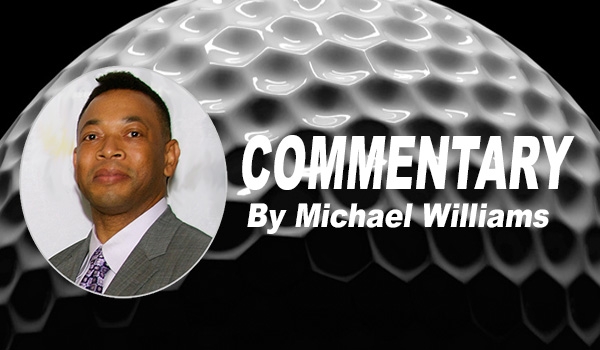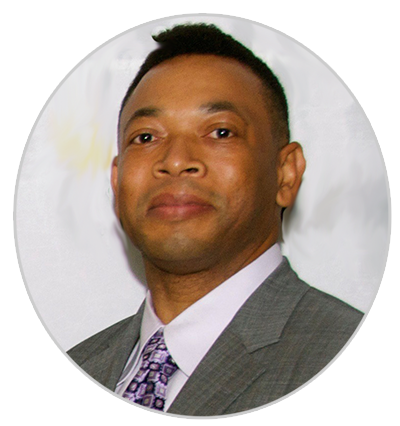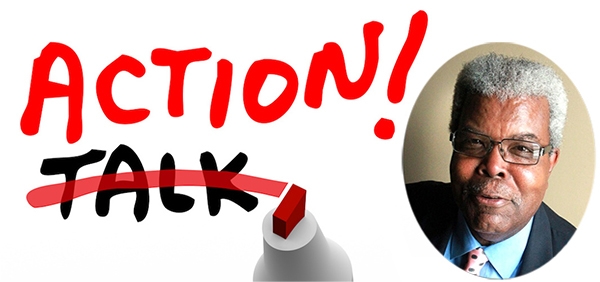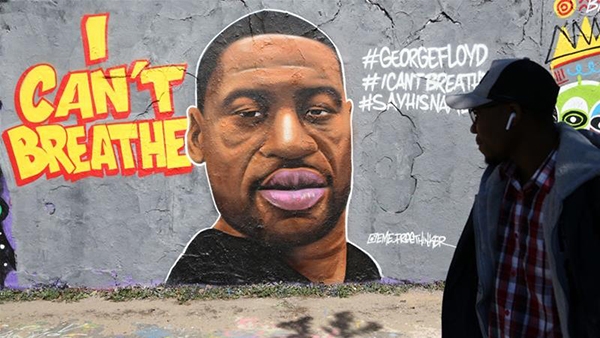Like everyone, I have been touched by the brutal murder of George Floyd. It has sparked a wave of protest and demonstration that hasn’t been seen in this country since the height of the Civil Rights movement. As a journalist who covers politics as well as golf, I have been struck by the magnitude of the moment and the multitudes that have responded. Hopefully, it will lead to lasting reforms that will ameliorate the many inequalities and injustices in our country.
I also have noted the reactions and responses from different corners of society, including the sports world. Numerous athletes and officials from major sports leagues have registered their concerns. I read with particular interest the remarks from PGA Tour commissioner Jay Monahan.
“This past weekend, I – like many of you, I’m sure – spent a lot of time trying to understand and process the civil unrest that has engulfed many cities across The United States, following the tragic death of George Floyd in Minneapolis. The hardships and injustices that have and continue to impact the African-American community are painful to watch and difficult to comprehend. And as a citizen of this country and a leader of this organization, I must admit that I’m struggling with what my role should be. But I’m not giving up.”
Monahan went on to say that he had engaged in several “emotional” conversations with colleagues and friends in the black community who showed him that “sometimes listening and making a commitment to understanding are the only things you can offer, and that’s OK.”
“We might not know exactly what to do right now,” Monahan added, “but we shouldn’t be deterred. We should communicate and learn. We should talk to our family, friends, and colleagues in an open and compassionate way. We should grow as individuals and as an organization. And, most importantly, we should demand better.” He said that the PGA Tour wants to play a role but that he is struggling with what to do and how to do it.
My question is, why is the industry struggling for a response?
I have been fortunate in my life in that I was not exposed to virulent racism early in life like my parents were. Both moved from segregated South Carolina to Washington, D.C. to escape the crushing yoke of racism. They raised us to be strong, independent, and to see character before color. In pre-school, I was reading to my class, so I was accepted at Sidwell Friends School in Washington, D.C., and became the first African American male to attend from Kindergarten through 12th grade. As children do, the only race that mattered was on the playground at recess. As I moved into the world, I did experience my share of prejudice and bigotry. For an African American man in America, it just comes with the territory.
I have been in the golf business for 17 years. I have operated golf courses, one of them a historic course that was opened specifically for Black people when every course in DC was segregated and have gone on to become a member of the golf media. In that time, I have been blessed to have been a guest at some of the most special places in golf and the experiences have given me a lifetime of memories.
 You May Also Like:
You May Also Like:
Actions Speak Louder Than Words
I have made friends with people of all races, religions, and nationalities in my time in the golf world. I have worn a kilt in Scotland and I have said grace at dinner in the most exclusive club in Mississippi. From the tip of the African Cape to the valleys of India, from the beaches of Asia to the mountains of Northern Europe I have borne witness to the magic of golf when walking 18 holes in God’s creation brings out the best in His people.
But I have also experienced the fact that Black people in golf are viewed as a rare and sometimes unwanted presence. I have become accustomed to being the only African-American in any given clubhouse, media gathering, or industry meeting. If I had a round of golf at Augusta National for every time that I have been standing in front of a clubhouse or hotel and had someone hand me their keys to park their car or ask me to put their bag on a cart, well, I’d have more experience at Augusta than most of the Tour.
In the United States, the game and industry of golf are intertwined with privilege and exclusion. And as the nation has faced the ugliness of racism and sexism and made advances, so has golf. Renee Powell, Charlie Sifford, Lee Elder; these are the names of pioneers, giants who broke down barriers and made it possible for me to do what I do. But despite these heroes, there remains a homogenous nature to the game composed of money, privilege, and race. When I was named Media Person of the Year in 2014 for the PGA Middle Atlantic section, I was the first and only person of color to win an award in any category in a section that was founded in 1925. Sadly, six years later that is still the case.
In recent times the game has initiated efforts to change both the impression and the reality that golf is only for a certain kind of person. But too often, what begin as noble agents of change get assimilated into the more pressing issues surrounding the bottom line. The First Tee program (TFT) started out as a way to bring the game to underserved communities. Over time, corporate interests overwhelmed both the mission and the message. Now, TFT has the mission of generally “growing the game”. Many chapters are now run from exclusive country clubs and are essentially finishing schools for the current “golf culture”. There are diversity officers in each of the game’s governing bodies such as the PGA of America and the USGA, but what significant initiative or accomplishment can they point to? The leadership at East Potomac Golf Course in Washington, D.C. tried to prod the PGA of America diversity office to facilitate the establishment of a golf program at Howard University, the historically Black university located in the nation’s capital. Every year calls were made and interest was shown but no action was taken. It took Steph Curry, a basketball player, to take his celebrity on the court to make strides on the course.
For years, I have taken proposals to all of the top golf course operating groups, making the case for how the game can become relevant in diverse communities if they would devote time and resources to that cause. All of them gave me responses that reminded me of one I got from a bank manager rejecting a plan for a business loan, “Michael, it’s not a good idea. It’s not a bad idea. It’s just your idea.”
 YOU MAY ALSO LIKE:
YOU MAY ALSO LIKE:
Outraged, Fed Up Over the Silence of Racial Disparities
I have begged and pleaded with the governing bodies of the game to be proactive in promoting diversity and displaying leadership. I have tried to explain that the culture of the game and industry is that people of color are not wanted and that eventually there would be an incident that would bring a deluge of negative attention to the game. Last year at the U.S. Open, I attended an invitation-only reception that featured two prominent PGA Tour professionals, one a possible future Hall of Fame player. That Hall of Fame caliber player told the assembled crowd the story of the night his neighbor Tiger Woods had his infamous car accident at Isleworth, and as a “joke” the pro put on blackface and a wig then convinced a blonde companion to drive around with him pretending to be Tiger in an attempt to prank the media. There was shock and nervous laughter but not a single person voiced an objection.
As the only African American guest in the room, I felt every eye in the place on me. Trying to control my anger, I raised my hand and told that player that I respected his accomplishments, but he should be ashamed of telling that story. He later gave me the apology line, “I’m sorry if you were offended.” He said he would call me later to discuss it. Oddly enough, I’m still waiting for that call. Later, many people in the room approached me to say that they appreciated my speaking up, but I couldn’t put aside my anger and bewilderment at how easy it was for that pro to assume that it was a socially acceptable story.
I implored the USGA, the PGA, The Golf Channel, and others take that incident as a bullet dodged and a signal to be proactive and take the lead in providing sensitivity training and initiating programs that would build a bridge to the community at large. My efforts were largely ignored. I have been told that the pro in question was forced by sponsors to take sensitivity training; I’d love to hear from him how that training has changed his outlook.
I didn’t report the story of that day at the U.S. Open, partly because I was not there as a member of the media and I felt conflicted. But I also wanted to give the sport I love the chance to do the right thing without taking the withering press that would come with the public revelation of the incident. Now, I feel even more conflicted but not for the same reasons.
The answer for golf is the same as it is for culture at large. The goal isn’t to eliminate bigotry and intolerance; I believe that those are, sadly, part of the human condition. But we can make them rare and unacceptable, by recognizing that they exist and then taking steps to hold people accountable for harboring it in any part of the game. We can educate and train people to empathize and appreciate those with different backgrounds and experiences. We can teach people how to reach out and invite those who might be intimidated and make them feel at home.
It’s not hard to figure out what to do. The thing that makes this action difficult is properly balancing the action with the potential reaction of a core clientele that is conservative by nature and is mostly apathetic or actively opposed to significant social change. But if we have been reminded of one thing from recent events, it is that change involves taking actions that will make some people uncomfortable and that the only constant in this world is change. For this to work, there has to be a willingness to reject the familiar and embrace the future. The answers for golf and for the nation lie outside their comfort zone.
The golf leadership is right to do some analytical thinking on a best approach, but there is low- hanging fruit when it comes to concrete actions that can and should be taken immediately.
There are some glaring deficiencies that can be addressed with some specific actions addressing specific issues:
- Golf’s touring professionals are its most visible and effective ambassadors. But by nature and by nurture they tend to be a very sequestered and homogenous group, shut off from the glaring realities of the day to day world by the demands of their profession and the wealth it affords them. Disturbing as it may be, the incident with the golf pro at the U.S. Open is not an isolated occurrence. People of color are routinely subjected to words and actions that are hurtful, disrespectful, and damaging to individuals as well as to the institution of golf. Touring professionals are already powerful advocates for any number of worthy causes; why should social justice not be among them? As was the case with the golf pro at the U.S. Open, every player on every professional tour should be required to take a course on diversity issues that cover race and gender. The training would enable them to empathize with diverse communities and build awareness within the traditional golf community.
- Part of the future acceptance of people of color in golf is recognizing the contributions that we have made in the past to the history of the game. Sometime this year, Tiger Woods will be inducted into the World Golf Hall of Fame, making him only the second African American to be inducted (Charlie Sifford was the first). The WGHOF is the pinnacle of golf achievement, a testament to the enduring impact made on the game by its members. It seems to me, a curiosity at best and an injustice at worst, that names like Bing Crosby and Bob Hope have lockers in the Hall while some of the greatest contributors to the game, who just happen to be Black, do not. To rectify that, the next Hall of Fame class should include Renee Powell (LPGA pioneer and golf course owner), Lee Elder (first African American to play in the Masters and most recent recipient of the USGA Bob Jones Award, its highest honor), Calvin Peete (winner of the Players Championship and the straightest driver the game has ever known) and John Shippen (the first American golf professional). The induction ceremony for this stellar group would be a clarion call to the world that in golf, all are welcome and all are appreciated.
- There have been suggestions for convening a summit to discuss solutions to race and social justice issues. While the idea is noble, the example of The First Tee I mentioned before shows how efforts to make progress can all too easily be co-opted by the effort to make a profit. Instead of a one-time meeting or summit, there should be a standing committee to assess diversity and inequality within the game and the industry, with the mission of creating a list of concrete action items for improvement and advancement of diversity, equality, and social justice issues. The committee could be made up of representatives from the game’s governing bodies, sponsors, and professionals, as well as representatives from the media, politics, and community advisors. The object would be to both develop original ideas and to take in ideas and initiatives that have worked outside of golf, then facilitate their implementation in the golf world. This group would ensure the constant flow of good ideas and to sustain in perpetuity those ideas that prove effective.
- There are around 150 jobs as a PGA Tour professional, but there are thousands of careers in the golf business, many of which have practically zero minority participation. To correct that, there should be funds set aside in the form of scholarships and paid internships to develop careers for minorities and women in golf that are not related to playing professionally, such as golf course design, golf course management, and the media. For example, the fact that there are no persons of color or women among the prominent course architects in the game is a disgrace, but one that is utterly correctable through opportunities that would be afforded by scholarships and internships.
- An organization should be fostered to take over the previous mission of The First Tee, that is, to introduce the game to underserved communities and to make the continued pursuit of the game more affordable and accessible for those that wish to participate. Providing funding for the cost of equipment, apparel, instruction and course access will allow the game to be enjoyed by those not necessarily of the affluent
These suggestions are of course just a starting point; there are a stable full of ideas and initiatives out there. But there must be the will to implement and establish them.
Golf is unique among major sports in that it is a game that is defined by the people that make the game part of their lives rather than the people that play it for a living. Golf should be a way of life available to all people. It should be known for building bridges rather than putting up gates. That’s not the case right now, but it can be.
There is a clear path for Mr. Monahan and others to take the lead and, as is always the case, there is very little foot traffic on the high road. Some people might say that with all that is going on in the world, what difference does it make what golf does? My response is that it is important because I live here, it is part of my world and it is not exempt from responsibility for its connection to the wider world.
I appreciate the good work that has been done to date in the golf community to facilitate change. I also know that there is a lot left to be done. Like a good round of golf, let’s take it one shot at a time.
If you have questions, you know where to find me. Sincerely,
Michael Williams
ABOUT MICHAEL WILLIAMS
Michael is a 17 year veteran in the industry and he currently writes and hosts a podcast for GolfWRX.com, the #1 website for avid golfers with around 22 Million page views per month. His podcast, “The 19th Hole with Michael Williams” on GolfWRX.com , covers the world of golf and golf lifestyle, and reaches up to 40k listeners per week.
He is also the moderator of “Issues In The News”, the flagship English language politics show for Voice of America. The show features leading Washington D.C. based journalists discussing the key topics of the week with an audience of 19 million listeners worldwide. Reach him at michaelwilliamstv@gmail.com






